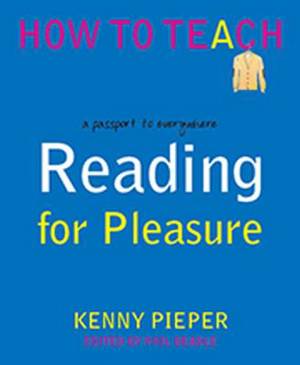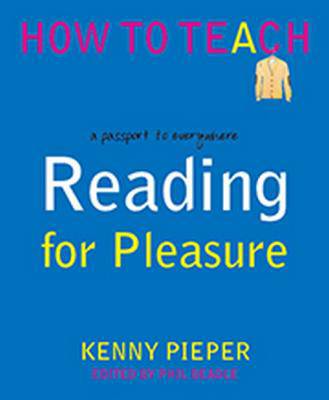
- Retrait gratuit dans votre magasin Club
- 7.000.000 titres dans notre catalogue
- Payer en toute sécurité
- Toujours un magasin près de chez vous
- Retrait gratuit dans votre magasin Club
- 7.000.0000 titres dans notre catalogue
- Payer en toute sécurité
- Toujours un magasin près de chez vous
22,95 €
+ 45 points
Description
Phil Beadle's How to Teach series.In Reading for Pleasure, Kenny Pieper has gathered a range of tried-and-tested strategies to get kids reading, and enjoying it. We hear too often that kids don't read any more: Kenny thinks it should be every teacher's mission to prove this isn't true. In a squeezed curriculum it can be tempting to accept pupils' lack of reading and make excuses that there is not enough time to give to the 'luxury' of personal reading. Teachers do this at our peril. Reading is the essential building block of further literacy development as well as a skill, hobby and habit that we can take with us forever.Kenny Pieper takes the act of reading for granted, as many - but sadly not all - adults do. You're reading this right now. However, this isn't the case for everyone. Kenny teaches kids whose lives are terrifying obstacle courses of reading-related problems. They know they struggle with reading so they try to avoid reading at all costs. They leave school, not merely unaffected by this strange reading thing, but saddled with a great deal of emotional baggage about being an outsider, even more entrenched in a belief that reading is for others more intelligent than them. Then there are the children who can read perfectly well, but chose not to, unconvinced of the importance of reading in their lives. What difference does it make to them? We have to answer that question in school. We have a duty to put an end to illiteracy and aliteracy. Kids need reading role models and, as a teacher, that role model is you. You may be the only adult who that reluctant reader will ever see reading. Teachers are critical in giving all children the gift of being able to read well and to value reading.Topics covered include: the author's personal reading journey, how reading enabled him to become the first person in his family to go to university and convinced him that fostering a love of reading is his moral duty as an educator, illiteracy and aliteracy, reluctant readers, book reviews, prioritising personal reading by devoting ten minutes each lesson to it, habitual reading, the reading environment, interest inventories, technology, e-readers, Accelerated Reader programmes, recommended reading, building a class library, bookmarks, book tweets, book speed-dating, libraries, librarians, literacy and class inequality, parental involvement, podcasting, reading records, reading dialogue journals, the rights of the reader, reading aloud, silent reading and literacy and gender, amongst others.The benefits we can all reap when kids become confident readers who read for pleasure are obvious. Discover strategies which will: get kids talking about books, get them thinking about books, get them reading books, encourage independent reading, develop literacy skills and establish a classroom culture where reading is expected and celebrated.Suitable for primary and secondary teachers, leaders and SENCOs, or just anyone with an interest in or responsibility for getting kids to read.
Spécifications
Parties prenantes
- Auteur(s) :
- Editeur:
Contenu
- Nombre de pages :
- 160
- Langue:
- Anglais
- Collection :
Caractéristiques
- EAN:
- 9781781352670
- Date de parution :
- 01-03-17
- Format:
- Livre broché
- Format numérique:
- Trade paperback (VS)
- Dimensions :
- 145 mm x 178 mm
- Poids :
- 226 g

Les avis
Nous publions uniquement les avis qui respectent les conditions requises. Consultez nos conditions pour les avis.






